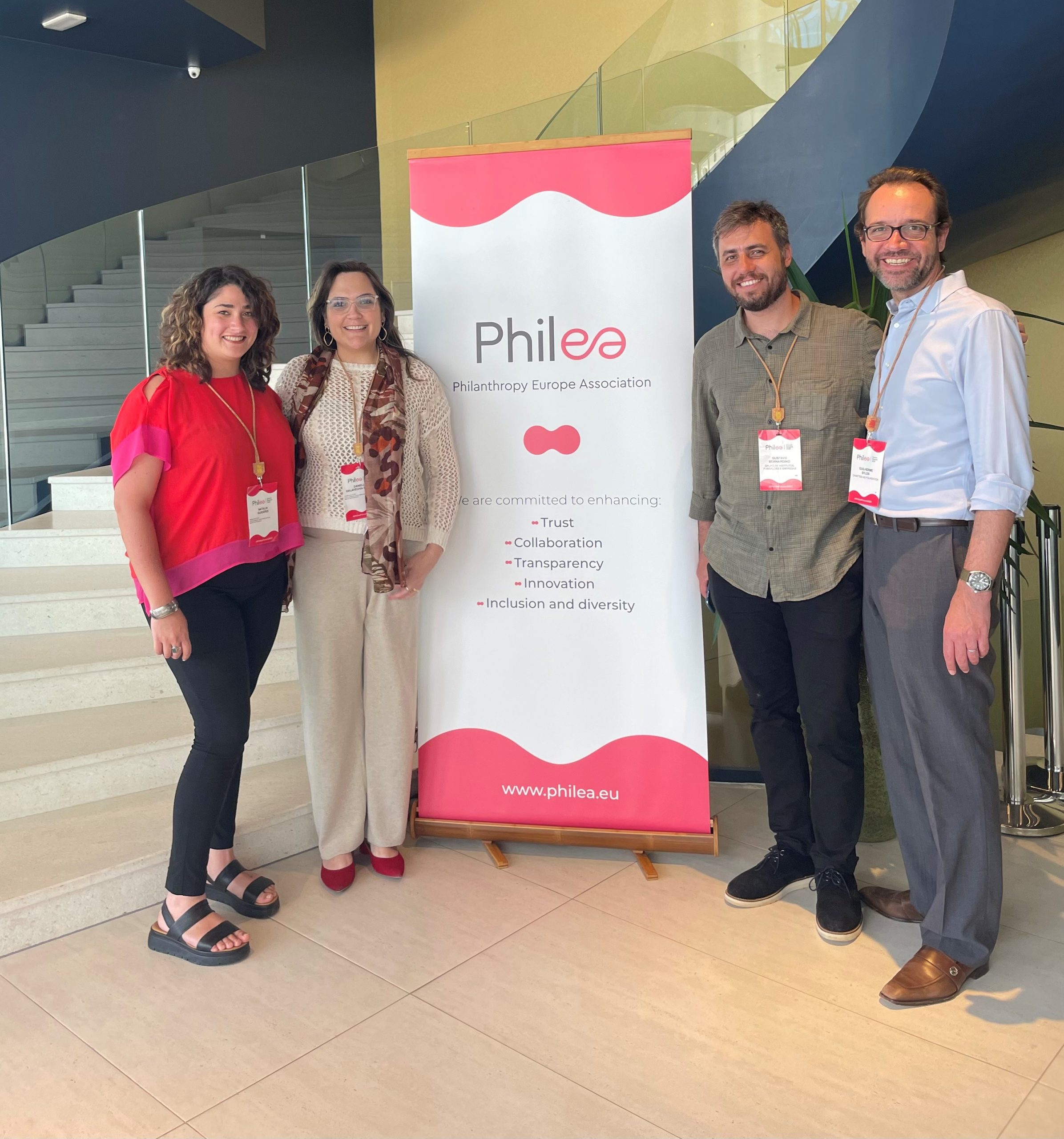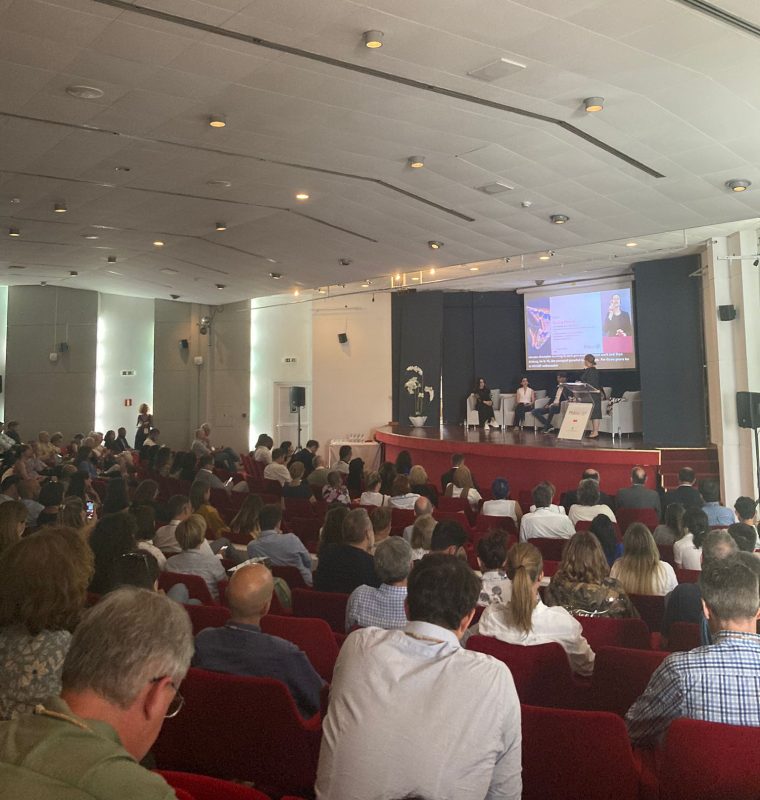By Luisa Lima and Lavínia Xavier
The giving culture is characterized by people’s habit of sharing resources, time or talents with causes and organizations that benefit the community. Its strengthening is a gradual process, shaped over time by changes, new socio-environmental demands, and, above all, the active participation of society and its trust that such donations will indeed make a difference.
Youth plays an essential role in building this culture, with energy, creativity, and innovative perspectives on civic and philanthropic engagement. The ‘Future of Giving’ study conducted by sparks&honey indicates that young people seek more meaning in their donations and want to support organizations that generate sustainable long-term impact, indicating that purpose and the feeling of contributing positively are more valuable to the group than any other generation.
Access to instant information through the internet and social media brings young people closer to global events and challenges. Furthermore, education and awareness about these issues are increasingly present in everyday life. As new generations naturally develop a sharper awareness of socio-environmental issues affecting the world, they also tend to play a more active role in building and maintaining a long-term giving culture.
Brazil Giving Research 2022, promoted by IDIS and conducted by Ipsos, revealed that 84% of young people aged 18 to 27, known as ‘Generation Z,’ made some type of donation in 2022. This data shows a significant increase compared to the 2020 survey, in which 63% of respondents in the same age group claimed to have made donations. The most common forms of donation include the contribution of material goods (76%), followed by cash donations (43%) and donations of time/volunteer work (30%). Generation Z tends to donate proportionally more through volunteer work than the rest of the population and less in cash. This discrepancy can be attributed to the lower average income of this audience compared to older generations.
The research also reveals that young donors have a significant tendency to promote or contribute in some way to fundraising or mobilization campaigns. This data was confirmed by 7 out of 10 young donors in 2022, with 20% of them claiming to have done so on more than one occasion. The group also demonstrates greater optimism towards Non-Governmental Organizations (NGOs) compared to the general population. Among young people, 73% agree that NGOs play a fundamental role in addressing socio-environmental problems, and 83% agree with the statement that ‘NGOs depend on the collaboration of individuals and companies to obtain resources and function’.
Moreover, the Brazil Giving Research 2022 shows that 52% of Generation Z donors not only stated they plan to continue their donations but also believe they will donate more compared to the previous year. This openness indicates an opportunity for philanthropic organizations to engage with Generation Z.
Some initiatives have already understood the potential of youth engagement in socio-environmental causes. In the United States, DoSomething, self-described as an activism center inspiring young people to change the world, has motivated millions of them in all American states and in more than 189 countries to act on issues affecting their communities. According to the organization itself, these efforts resulted in achievements such as the registration of 415,000 new voters in the American elections.
Another example is the partnership between TikTok and the British initiative Blue Cross, dedicated to animal welfare. The organization received a $1 donation for each video shared with the hashtag #PetBFF. The campaign reached over 500 billion views only during its launch year in 2019. In Brazil, it is interesting to note that social media plays a relevant role in donation decisions, with 25% of young people admitting its influence in this process, compared to 17% of the general population. Among the most influential platforms for the public are Instagram (89%), Facebook (37%), and TikTok (13%).
The organization TETO, present in 18 countries, is dedicated to improving housing conditions and stands out for its robust volunteer program that attracts many young people and university students, including a specific pillar focused on school groups. The school and university environment plays a significant role in motivating young people to make donations and get involved in social causes, as also demonstrated by the Brazil Giving Research. 18% of Generation Z respondents claim to be influenced by campaigns held in their workplaces, schools, or colleges, compared to 14% of the general population.
These examples highlight how connecting with youth and identifying behavioral trends can generate results, create opportunities for active group involvement, strengthen the third sector and build a more robust giving culture.
It is true that, despite some promising examples, relatively few third-sector organizations and initiatives have actively engaged in direct communication and outreach to younger audiences. This can be attributed to various factors, including specific challenges in identifying the best communication strategies for Generation Z, as well as human resource limitations in organizations, which often operate with lean teams.
However, it is crucial to recognize the relevance of the opportunity that the third sector has to engage more people and raise more resources by directing its communication efforts towards Generation Z. It is necessary to closely observe the behavior, motivations, and trends of this group.
It is important for the Brazilian third sector to be attentive and open to adapting and connecting effectively with Generation Z, leveraging all its potential. The commitment of this generation to social causes, coupled with its technological proficiency, opens new doors for innovation and significant impact. Today’s youth represent the future of the third sector and should not have to wait for their potential to be recognized and demanded.




